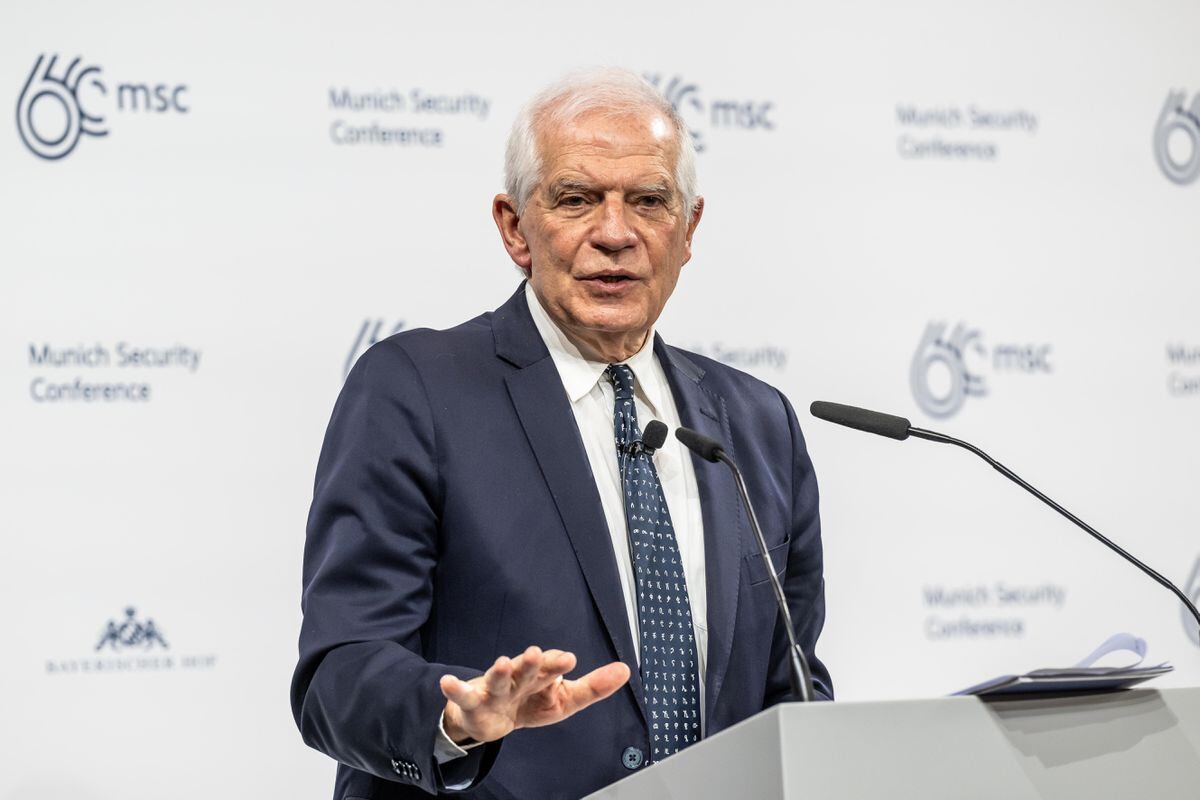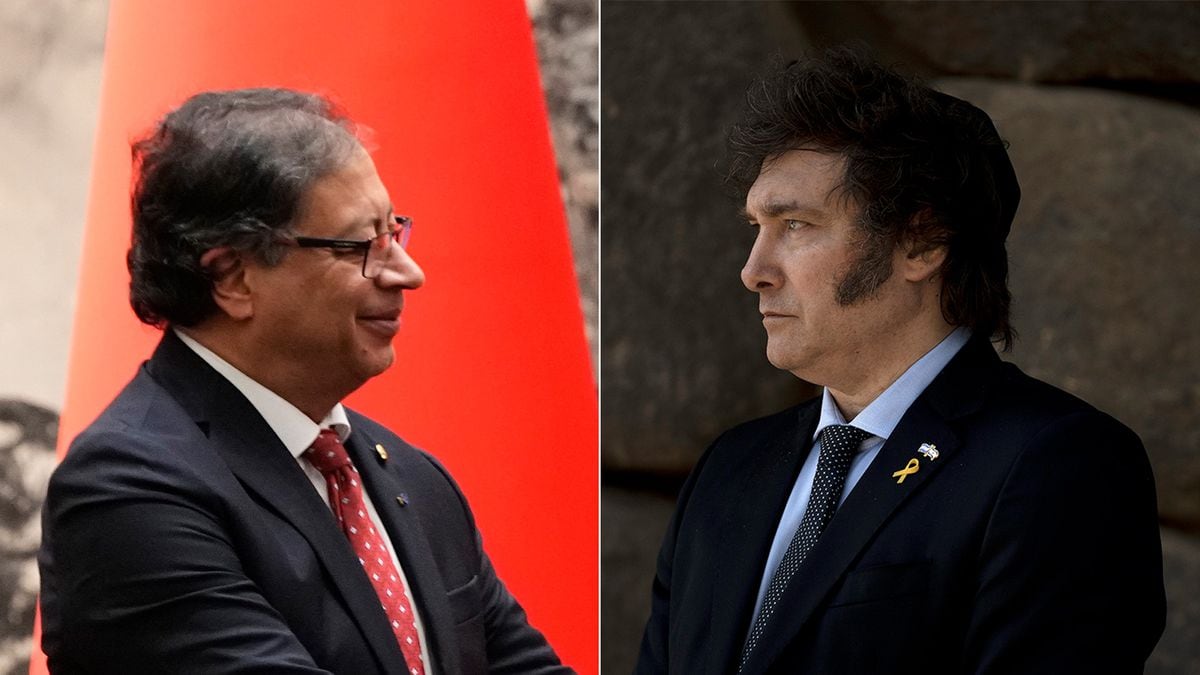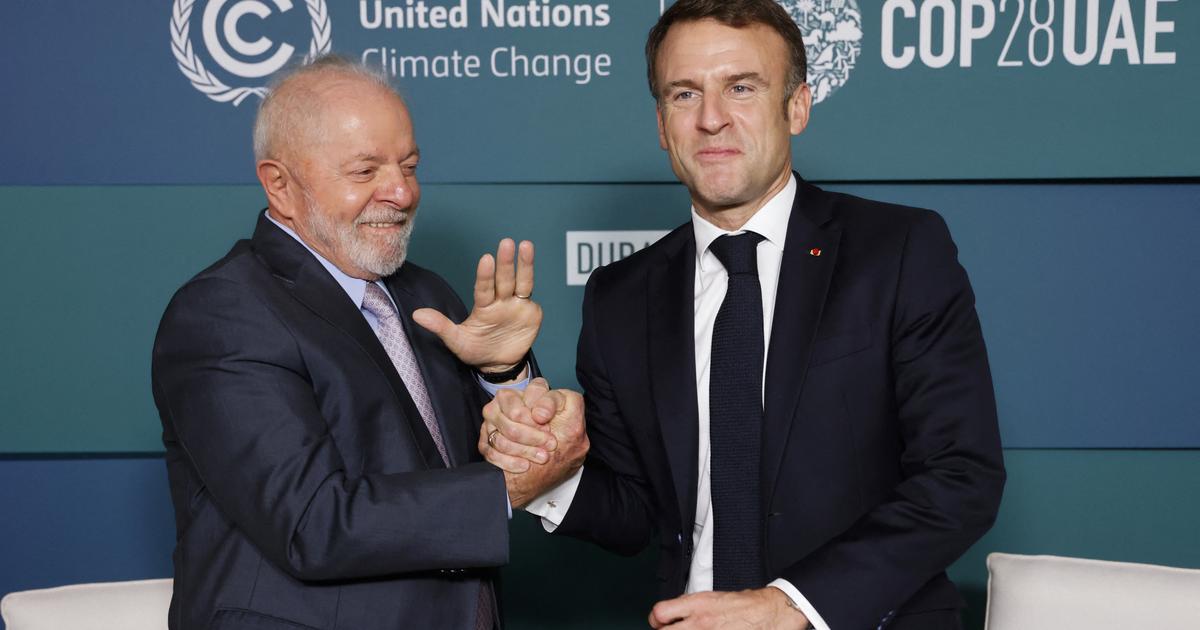Jorge Rodríguez, for the Government of Venezuela;
Dag Nylander, representative of Norway;
Mexican Foreign Minister Marcelo Ebrard and Gerardo Blyde, for the Venezuelan opposition, at the beginning of the dialogues at the Museum of Anthropology, on Friday, August 13, in Mexico City.
Once again, a delicate negotiation, with an uncertain outcome, keeps Latin America in suspense and focuses the eyes of the international community. Another attempt to bring the parties to a conflict with seemingly irreconcilable positions to the table. In this case, the Government and the opposition of Venezuela are preparing to dialogue in Mexico City in search of solutions to a deep political crisis. The difficult path is beginning to clear, and months of discreet approaches to various gangs have taken place, as has already happened with the Colombian peace process, under the protection of Norway. With patience and persistence, the Nordic country's diplomacy, which also places a strong emphasis on environmental issues, leaves its mark on the region.
The crisis in the Bolivarian Republic adds to a long list of conflicts where Norway has facilitated dialogue between rivals, both publicly and behind the scenes.
Since the meeting between the Palestinian Yasir Arafat and the Israeli Isaac Rabin in the Oslo Accords in 1993, she has launched a diplomacy in the service of peace that has led her to get involved in negotiations in different corners of the planet, from Sri Lanka or the Philippines to Guatemala, which signed peace in 1996, its first experience in Latin America.
More information
A seven-point agenda and the urgency of humanitarian agreements: Venezuela begins negotiations in Mexico
A region for peace
The Norwegian capital was also a key setting for the Colombian agreement negotiated by the Government of Juan Manuel Santos and the FARC for four years in Havana. The formal opening of the table was made in Oslo, in October 2012, and also its symbolic closing with the Nobel Peace Prize that the then president received in December 2016, days after having endorsed a renegotiated pact in Congress after the unexpected triumph of No in the plebiscite on the original agreement. "At a time when our ship seemed to be adrift, the Nobel Prize was the stern wind that propelled us to reach our destination: the port of peace," said Santos himself in his acceptance speech.
In the nascent dialogue between Venezuelans, reaching an electoral schedule that satisfies everyone and lifting the sanctions are two of the seven points of the memorandum of understanding signed last Friday in Mexico City. There, Dag Nylander, director of the Norwegian Center for Conflict Resolution, who was already a key figure in the peace agreement that disarmed the largest guerrilla in America, once again plays a leading role.
The resolution of conflicts in different regions of the planet has been an explicit goal of Norwegian foreign policy for decades.
"It is part of the idea that our interest, as a small country, is for the world to be a little more peaceful and have more respect for the environment, it is not a commercial or geopolitical interest," says Benedicte Bull, professor of science. Politician from the University of Oslo and expert in Latin America.
Their role in the Venezuelan dialogue, he points out, has roots in the role they already played in the dialogues with the FARC, which were accompanied by Venezuela;
in the contacts, the knowledge and the trust they generated.
Join EL PAÍS now to follow all the news and read without limits
Subscribe here
Although they are very different negotiations, with their own peculiarities –such as Russia's accompaniment in the Venezuelan case, among the most significant–, there are several similarities. Oslo is involved in the long term, without much publicity, to build bridges between the parties, or what in Venezuela have been called "tunnels" between the Government of Nicolás Maduro and the opposition, since they are not so visible and mistrust is still rife. Norwegian diplomats are distinguished by a willingness to work year after year, even when there is no hope of establishing a process. And they are also willing to take the political risk that it ends in a fiasco. “They work very discreetly,” Bull emphasizes, and they try to create a framework agreement to start the dialogue and keep the pace. This is corroborated by María Ángela Holguín,the Colombian Foreign Minister during the Santos Government (2010-2018), very involved in the agreements that have Cuba and Norway as guarantor countries. "They helped a lot by giving space for dialogue", he values, "they put all the human resources to facilitate the negotiation."
"The idea of Norway as a kind of mediator comes out of the Cold War," explains academic Bull. Norway was a great ally of the United States, a member of NATO, but it also shares a border with Russia, by then the Soviet Union, so its response was to become a bridge between the two powers to facilitate a better understanding. That mediating role, emphasized by successive governments, was later linked to a broader "policy of engagement", with an emphasis on human rights, humanitarian issues and, increasingly, gender equality and climate and environmental issues. "It is a foreign policy of the State, not of the Government", oblivious to the electoral ups and downs, Bull emphasizes. The Nordic country, in fact, has parliamentary elections in less than a month, on September 13.If the change predicted by the polls takes place to relieve the conservative prime minister, Erna Solberg, after eight years, Norwegian diplomacy will maintain those same axes.
Green diplomacy
Despite being an oil-producing country, the so-called "green diplomacy" is another pillar of Norwegian foreign policy, in the world and in the region.
Oslo decided to commit itself fully to the fight against climate change more than a decade ago, with an agreement between all political parties to create a fund that helps reduce deforestation.
Since then, it has made alliances for the protection of forests with several South American countries, one of the most biodiverse regions on the planet, such as Peru, Ecuador, Colombia or Brazil - where the environmentally unfriendly policies of Jair Bolsonaro have hindered that cooperation. , which largely focuses on pay-for-results schemes.
The Prime Minister of Norway, Erna Solberg, tours an indigenous reservation in the Amazon with President Juan Manuel Santos during his visit to Colombia in April 2018.Mauricio Dueñas Castañeda / Efe
Solberg, precisely, was the first Norwegian head of government to set foot on the Amazon, the so-called lung of the world, during a visit to Colombia in April 2018. For the Andean country, where natural forests cover almost 60 million hectares and the main cause of climate change is deforestation, Norway is the main environmental cooperator. Hand in hand with this alliance, which includes high-impact programs to protect forests and ethnic communities, Bogotá has increased its goals to reduce deforestation. "In addition, what we do must be directly or indirectly supporting the implementation of the peace agreement in Colombia," says Ole Reidar Bergum, climate and forest adviser at the Norwegian embassy. Only in the Andean country, Oslo has committed up to 310 million dollars in green cooperation until 2025,depending on the results.
Conflict resolution and environmental issues are not independent fronts for active Nordic diplomacy.
As a non-permanent member of the UN Security Council, Norway is also pushing for an agenda that includes a greater emphasis on climate change as a potential generator of conflict in the world.
That vision is also projected, in a discreet way, to Latin American politics.
Subscribe here
to the
newsletter
of EL PAÍS América and receive all the informative keys of the current situation in the region.

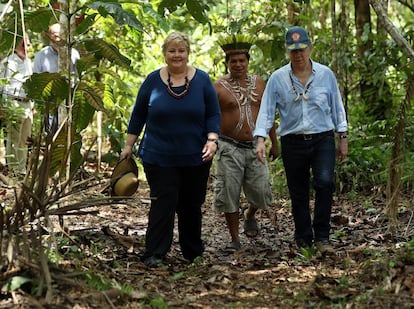

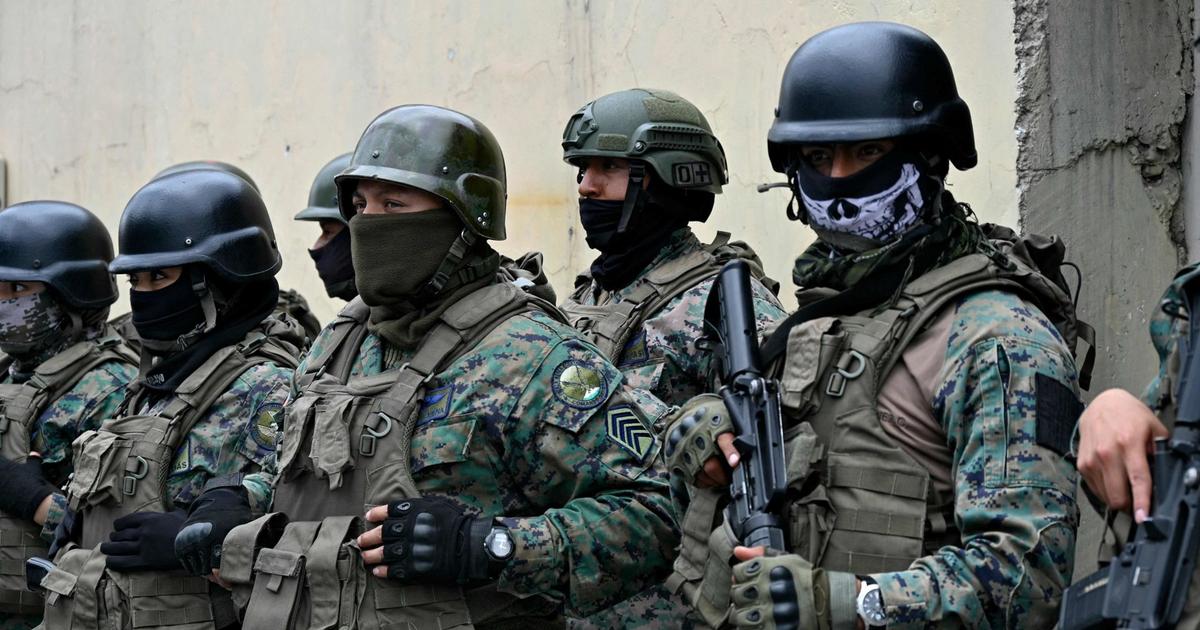
/cloudfront-eu-central-1.images.arcpublishing.com/prisa/GZBJJXO3EZE2HLSP5ZRRKYYYOY.JPG)
/cloudfront-eu-central-1.images.arcpublishing.com/prisa/RHYRDMQQ7BG5JOUSKAXBLKE6YE.jpg)
